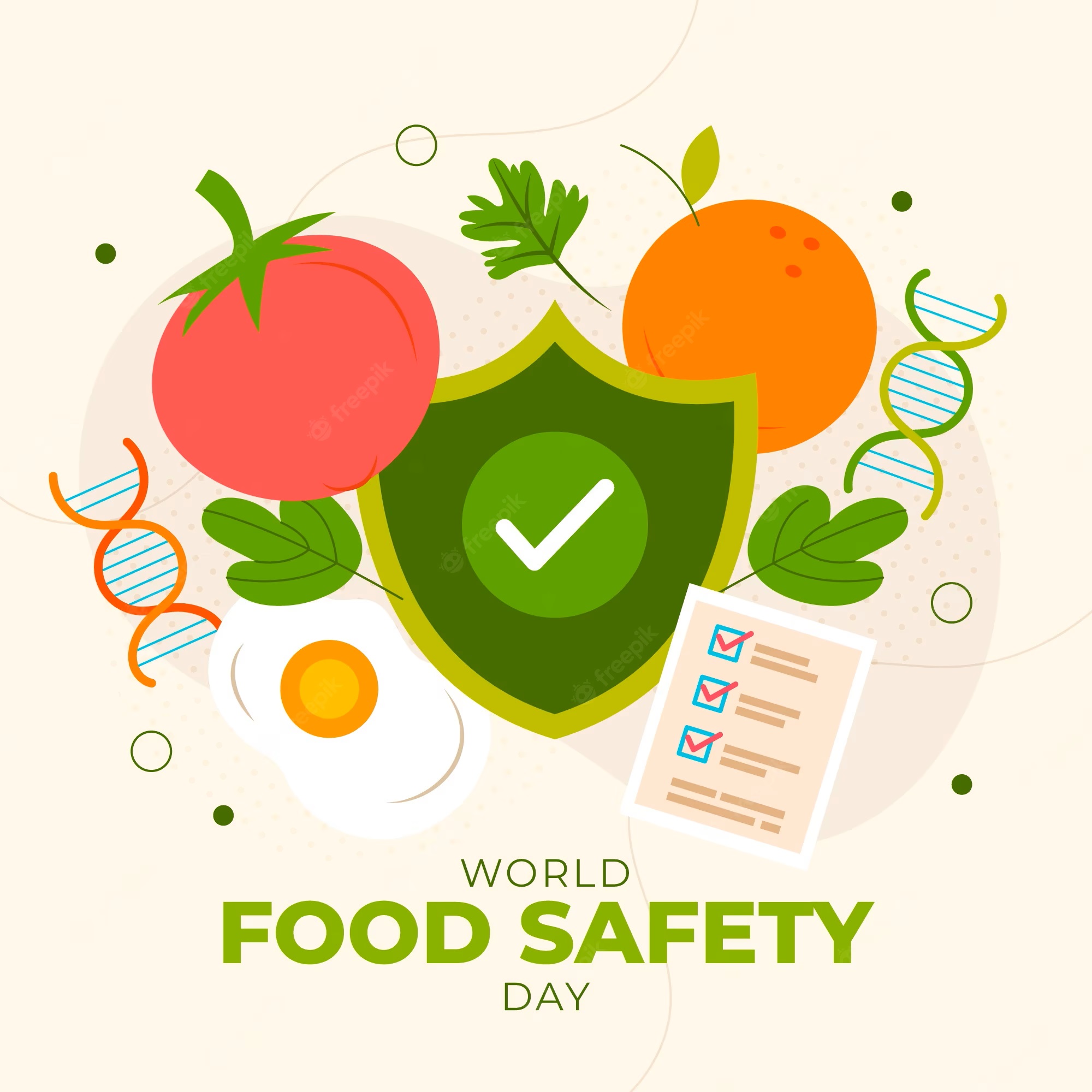
Food Safety

2.0 AIM: To train Food Safety graduates that will impact better food and feed safety culture
and ensure safer foods for healthy living across Africa.
- OBJECTIVES: To help the student
- Gain a better understanding of effective food safety principles
- Differentiate between a traditional food safety management system versus a science-based food safety approach.
- Understanding international food safety regulation and its subsidiaries’ bodies
- Improve the effectiveness of training, education, and communication efforts in creating smarter food safety goals
- Acquire practical food safety knowledge and real-world applications that will help them become more effective in their current role and better equip them as food safety Experts
- To increase knowledge on how to handle, prepare and practice to prevent food-borne disease outbreaks
- Understanding of food production from farm to table.
Admission requirement
To be determined by the admission committee of the African Centre of Excellence for Mycotoxin and Food Safety FUT Minna following the provision of the regulation of the Senate and School of Postgraduate Studies Federal University of Technology Minna.
Duration of the Programme
The degree program in Food Safety will be in the form of a 2 years collaborative M. Tech program. The first part of the program will involve coursework lasting for 12 months followed by 4 months of Internship/Industrial work experience with partners from government institutions, food safety regulators, food producers, and business communities
Title of degree
To be named by the host Department of the center following the provision of the regulation of the Senate and School of Postgraduate Studies Federal University of Technology Minna
2.0 PROGRAM NAME: MASTERS OF TECHNOLOGY (MTECH) IN FOOD SAFETY
2.1 ELIGIBILITY
In addition to O level entry requirement as in the admission guideline of Federal University of Technology Minna, candidates with a minimum of second class lower degree in a related discipline may be admitted into the program but must have a CGPA of 2.50 and above at the end of course work before proceeding to the research. The related courses are Biochemistry, Molecular Biology and Bioinformatics, Microbiology, Veterinary Medicine, Bachelor of Medicine & Surgery, Pharmacy, Chemistry, Food Science, Animal Science, Crop Science, Plant Pathology and related subjects.
2.2 METHODS OF INSTRUCTION.
Generally, pedagogical approaches will be adopted. These will include lecture methods, demonstrations, tutorials, group presentations, and slide presentations. Laboratory practicals will include wet and dry practicals, field trips, and report presentations at the end of the internship. Teleconferencing and mid-term papers are also not excluded.
2.3 METHODS OF EVALUATION
Procedure for formative (CA) including assignments and mid-term test: 40 %
Procedure for summative: 60 %
Internship/Industrial experience: 3 months
Practical-based classes shall be assessed thus:
Weekly class experiments: 40 %
Advanced technique term paper: 10 %
Examination: 50 %
2.4 GRADUATION REQUIREMENTS
A minimum of three (3) semesters and a maximum of six (6) semesters are required to be spent by the candidates while on the program. This includes the period spent on the coursework and internship. To complete the course, students are required to register and PASS thirty-nine (39) core credit units from the three semesters and a minimum of four (4) elective credit units from the first and second semesters. The core courses include internships and projects as highlighted:
Core credit units: 35
Elective credit units: 4
Internship: 2
Research Project: 6
2.5 CARRIER/JOB OPPORTUNITIES
Graduates of MTech Food Safety shall be opportune to work as laboratory analysts, surveillance/senior inspectors, molecular toxicologists, forensic and clinical toxicologists, and food and safety officers/food safety regulators in various companies and industries. They would also be relevant as biosafety officers, toxicological risk assessors, food toxicologists, and instructors/lead instructors/trainers/lecturers.
3.0 PROGRAM NAME: DOCTOR OF PHILOSOPHY (PHD) IN FOOD SAFETY
3.1 ELIGIBILITY (PhD)
In addition to O level requirement as in the admission guideline of the Federal University of Technology Minna, candidates with a CGPA of 3.50 and above in a related discipline, who have applied to the Department for a PhD in Food Safety but without an MSc or MTech in Food Safety will be required to take a course work and acquire a minimum of 3.50 before proceeding to the research. The related courses are Biochemistry, Molecular Biology and Bioinformatics, Microbiology, Veterinary Medicine, Bachelor of Medicine & Surgery, Pharmacy, Chemistry, Food Science, Animal Science, Crop Science, Plant Pathology and related subjects.
3.2 METHODS OF INSTRUCTION.
Generally, pedagogical approaches will be adopted. These will include lecture methods, demonstrations, tutorials, group presentations, and slide presentations. Laboratory practicals will include wet and dry practicals, field trips, and report presentations at the end of the internship. Teleconferencing and mid-term papers are also not excluded.
3.3 METHODS OF EVALUATION
Procedure for formative (CA): 40%
Procedure for summative: 60%
Internship/Industrial experience: 3-6 months
Thesis: 6 Credit units
3.4 GRADUATION REQUIREMENTS
A minimum of six (6) semesters and a maximum of ten (10) semesters are required to be spent by the candidates while on the program. This includes the period spent on the course work (for candidates that must take the course work) and internship.
3.5 CARRIER/JOB OPPORTUNITIES
Doctoral degree holders in Food Safety have job opportunities in Agriculture and Food industries and regulatory organizations; Standards bureau/organizations, National Drug Administration and Food Control, Quarantine services, Veterinary Centres, Hospitals, Food and Chemical Industries, and lots more.